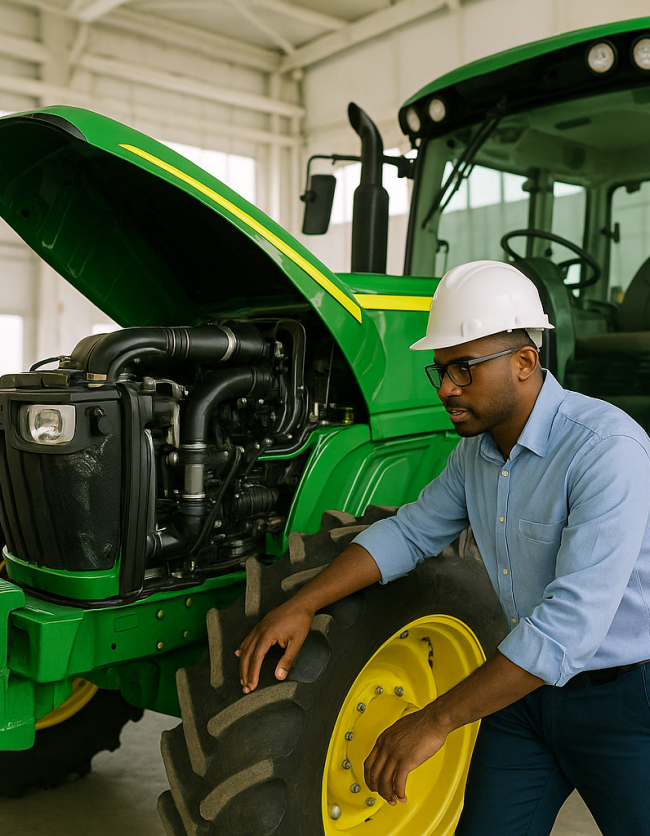News
The future of farming is electric: how battery-powered tractors and harvesters are transforming agribusinessn
From Brazil to the world, electrification is arriving in agricultural machinery, promising savings, sustainability, and efficiency. The movement already involves global giants, Brazilian startups, and creates unprecedented opportunities for those who invest in innovation.
A silent revolution in agribusiness
The sound of diesel engines has long been the background noise of the fields. But this soundtrack is giving way to a new melody: the nearly imperceptible hum of electric tractors and harvesters. Electrification, which has transformed the automotive industry, is now making its way into farming, bringing lower emissions, reduced costs, and new opportunities for agribusiness.
Efficiency and savings at the heart of change
Electric motors deliver instant torque, less component wear, and significantly lower maintenance needs. The figures are impressive: manufacturers report up to 90% savings in operating costs compared to diesel models. The New Holland T4 Electric tractor, for instance, has already shown autonomy for a full day’s work and can be recharged in just one hour. Beyond financial savings, silence is another advantage. Operators report reduced fatigue and greater safety in night operations, a plus for work near residential areas and livestock farming.
Brazil joins the electric race
On the national stage, startups like Santa Catarina’s Yak Tractors are already marketing compact electric tractors for small and medium-sized farms. At the same time, industry giants like New Holland and Case IH unveiled their first electric models at Agrishow, proving this transition is not just global — it’s already happening in Brazil. These machines, with power ranging from 75 to 120 horsepower, are ideal for mid-sized farming operations such as dairy, coffee plantations, orchards, and municipal services.
Global trends point the way
Meanwhile, worldwide, John Deere has introduced its autonomous E-Power prototype in the United States — a 130 hp electric tractor designed for orchards. Fendt (AGCO) launched its e107 Vario, with a 100 kWh battery and up to seven hours of autonomy in vineyards. Claas, in turn, is investing in hydrogen-powered engines for heavy-duty machines, anticipating solutions for segments where batteries still face limitations. These innovations demonstrate that electrification is only the first wave of a broader transformation: hybrids, biomethane, and hydrogen are also part of this ecosystem striving for energy efficiency and drastic emissions reduction.
Infrastructure and cost challenges
Despite the advantages, the path is not without obstacles. Charging infrastructure in rural areas is still limited, and the upfront cost of an electric tractor can be 20% to 50% higher than its diesel equivalent. However, experts highlight that lower lifetime operating costs quickly balance the equation. Moreover, Brazil holds a trump card: its abundance of renewable energy, particularly solar and biogas, which can be used to power these machines, enabling energy self-sufficient farms.
A strategic opportunity for Brazilian agribusiness
Producers who embrace electrification gain a competitive edge. Beyond daily savings, they can access international markets that demand more sustainable supply chains. For engineering and technology companies, this is a moment of leadership. This is where Global Group comes in: with expertise in durability testing, advanced simulations, and reliability validation, the company supports manufacturers and producers in ensuring this new generation of machines performs safely and efficiently under real farming conditions.
The electrification of agricultural machinery is no longer a promise: it is a reality spreading across Brazil and the world. With clear benefits in savings, sustainability, and performance, this movement opens a unique window of innovation for those in agribusiness. Want to know how Global Group can help your agricultural project prepare for the future? Contact us.
